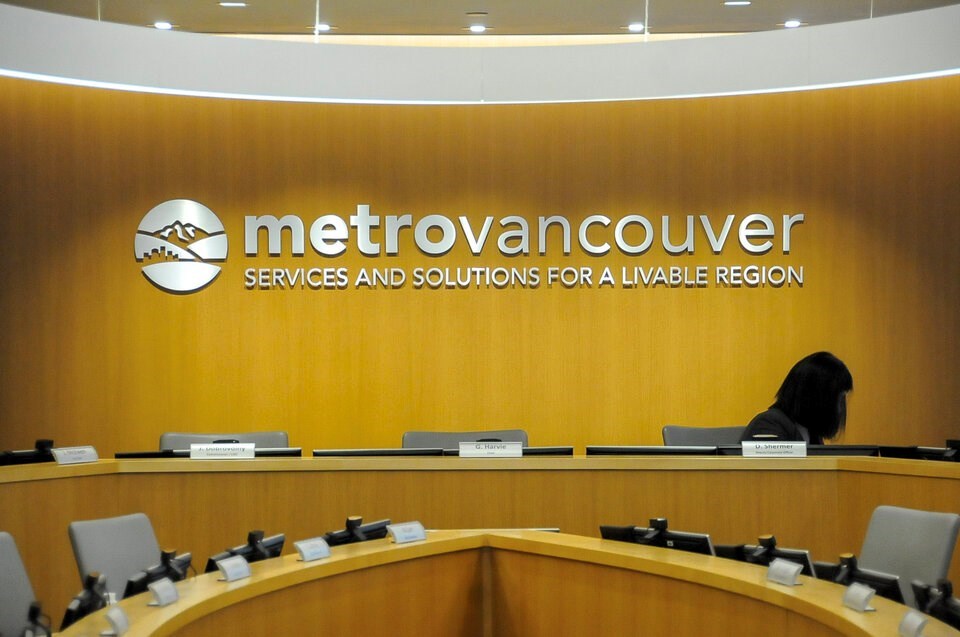The Metro Vancouver Regional District is considering changes to its development cost charge (DCC) program, which funds water and liquid waste infrastructure, following pushback from several developers.
Metro Vancouver has commissioned a new report that reviews and analyzes DCC categories and definitions, which could potentially lead to new policies more palatable to developers who have complained about steep rate changes that began in January.
“The intent of this project is to respond to provincial housing legislation and industry feedback, better reflect evolving development trends, and more equitably match the regional infrastructure impact associated with different land uses,” said an executive summary of the report ahead of Metro Vancouver’s June 27 board meeting.
According to the summary, preliminary recommendations from the April 2025 report, prepared by Watson & Associates Economists Ltd., include adjusting residential categories and definitions “to better accommodate new forms of small-scale multi-unit housing.”
Another recommendation is to introduce sub-categories for non-residential uses such as commercial and industrial “to ensure rates more accurately reflect the infrastructure demand associated with different forms of development.”
The report also recommends not proceeding with separate categories for residential rentals or transit areas “given the lack of a strong connection to regional infrastructure demand,” said the summary.
The next step would involve “targeted engagement with industry stakeholders,” with final recommendations brought for committee and board approval in fall 2025, it said.
“Pending approval, revised DCC categories will be incorporated into the broader 2027 DCC program update, along with the latest population projections and capital program updates, to inform new rate structures that will take effect from 2028 onward,” said the summary.
The existing regime began a three-year phase-in of much higher DCCs this past January, frustrating some developers. Several developers wrote letters to the Metro Vancouver board in September 2024, saying the increasing fees will significantly impact housing delivery and affordability.
“Simply increasing development fees to the point that new housing can’t move forward will not solve regional infrastructure and amenity delivery concerns,” wrote Wesgroup Properties LP president Beau Jarvis.
Burnaby Mayor Mike Hurley, who also chairs the Metro Vancouver board, responded at the time by saying senior government funding has been insufficient, necessitating DCC hikes.
“Without increasing DCCs, households would need to pay for the vast majority of the cost of new infrastructure through their utility bills,” Hurley's statement said.
Meanwhile, Metro Vancouver is also considering waiving DCCs for below-market rental units that are built by private developers and transferred to non-profits upon completion.


.png;w=120;h=80;mode=crop)
